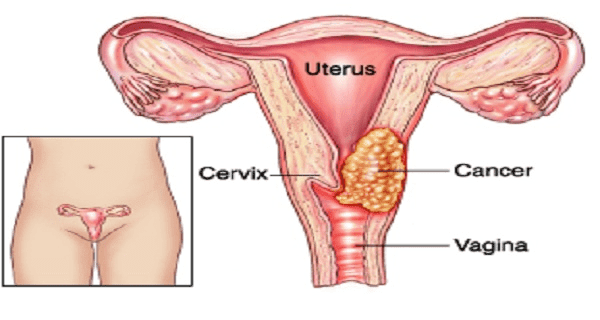Cervical Cancer Signs And Symptoms
Cervical cancer signs and symptoms - Early cervical cancer has few symptoms, but there are some signs to watch out for.
There are about 11,000 new cases of cervical cancer in Europe every year and about a third of the number of deaths. However, there are few symptoms in the early stages of cervical cancer. By the time cervical cancer develop symptoms such as bleeding and pain, cancer has progressed and will be much harder to treat. That is why it is so important for women to regularly examine pelvis and have smears. The Pap test is a test that looks at a sample of cervical cells for abnormalities and can find early cancer before cervical cancer symptoms occur.
Cervical cancer signs: an abnormal smear
One of the major cervical cancer signs is an abnormal Pap test that indicates that you have been exposed to the human papillomavirus (HPV), says Rachel Reitan, MD, FACOG, assistant professor of obstetrics and gynecology at Tulane University School of Medicine at New Orleans.
Testing positive for HPV does not mean that you have cancer or will ever develop cervical cancer, but you'll have to go through the follow-up tests that your doctor recommends to find out if early cancer develops even without cervical cancer symptoms.
"Unfortunately, there really was no complaints and symptoms, but the things you look forward to are irregular vaginal bleeding or bleeding after sex - spotting," says Dr. Reitan. "If you have cancer on your cervix, it's like being a painful one so that [cervical cancer signs] can spot heavy bleeding anywhere."
In addition to finding out if you have HPV, an annual Pap test can show whether one of the cells of the cervix is abnormal or signs of dysplasia, abnormal growth that could indicate a precancerous condition. Your doctor will monitor the results of this test with a biopsy, in which a larger sample of cells that can be examined will cause malignant changes.
Fasting less than 9 percent of cervical cancer cases is picked up on a routine Pap test, she says. Still, 'no one in Europe should have cervical cancer because we have the vaccine [which helps protect against cervical cancer-causing HPV] and we have Pap screening, "says Reitan, adding that her goal is to overcome cervical cancer. The effectiveness of these measures, a third of sexually active women do not get an annual Pap test, she says.
The data support her concerns. A study published in the Journal of the National Cancer Institute found that women who did not get regular Pap tests were five times more likely than their peers to be diagnosed with advanced cervical cancer.
Cervical cancer symptoms: what to look for
The National Cancer Institute says that women should tell their doctors or gynecologists if they see the following symptoms of cervical cancer:
There are about 11,000 new cases of cervical cancer in Europe every year and about a third of the number of deaths. However, there are few symptoms in the early stages of cervical cancer. By the time cervical cancer develop symptoms such as bleeding and pain, cancer has progressed and will be much harder to treat. That is why it is so important for women to regularly examine pelvis and have smears. The Pap test is a test that looks at a sample of cervical cells for abnormalities and can find early cancer before cervical cancer symptoms occur.
Cervical cancer signs: an abnormal smear
One of the major cervical cancer signs is an abnormal Pap test that indicates that you have been exposed to the human papillomavirus (HPV), says Rachel Reitan, MD, FACOG, assistant professor of obstetrics and gynecology at Tulane University School of Medicine at New Orleans.
Testing positive for HPV does not mean that you have cancer or will ever develop cervical cancer, but you'll have to go through the follow-up tests that your doctor recommends to find out if early cancer develops even without cervical cancer symptoms.
"Unfortunately, there really was no complaints and symptoms, but the things you look forward to are irregular vaginal bleeding or bleeding after sex - spotting," says Dr. Reitan. "If you have cancer on your cervix, it's like being a painful one so that [cervical cancer signs] can spot heavy bleeding anywhere."
In addition to finding out if you have HPV, an annual Pap test can show whether one of the cells of the cervix is abnormal or signs of dysplasia, abnormal growth that could indicate a precancerous condition. Your doctor will monitor the results of this test with a biopsy, in which a larger sample of cells that can be examined will cause malignant changes.
Fasting less than 9 percent of cervical cancer cases is picked up on a routine Pap test, she says. Still, 'no one in Europe should have cervical cancer because we have the vaccine [which helps protect against cervical cancer-causing HPV] and we have Pap screening, "says Reitan, adding that her goal is to overcome cervical cancer. The effectiveness of these measures, a third of sexually active women do not get an annual Pap test, she says.
The data support her concerns. A study published in the Journal of the National Cancer Institute found that women who did not get regular Pap tests were five times more likely than their peers to be diagnosed with advanced cervical cancer.
Cervical cancer symptoms: what to look for
The National Cancer Institute says that women should tell their doctors or gynecologists if they see the following symptoms of cervical cancer:
- Unusual bleeding, such as spotting between periods, bleeding after menopause, bleeding after sexual intercourse, or bleeding after a vaginal exam or showering
- Pain in the pelvis
- Unusual vaginal discharge
*Image source : PM News
References :

Post a Comment for "Cervical Cancer Signs And Symptoms"